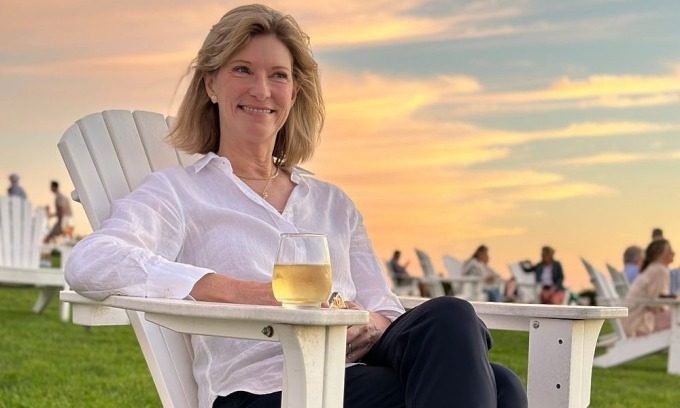US consumption is benefiting from an aging population, with strong finances, little debt and little risk of unemployment.
The US Department of Commerce announced on October 26 that the country's GDP grew by 4.9% in the third quarter. This rate is higher than the 2.1% growth rate in the previous quarter and also slightly higher than economists' forecasts.
Of that, consumption contributes about 68% of US GDP. Even as government support from the pandemic gradually dries up, consumption remains vibrant.
The question is why US consumption remains strong despite the Federal Reserve’s repeated interest rate hikes since early last year. Analysts say the reason is an important but little-noticed factor: consumers are aging.
In August, 17.7% of the U.S. population was 65 or older, according to the U.S. Census Bureau. That’s the highest number since 1920, up from 13% in 2010. This group of consumers has several advantages: they are relatively financially stable, have little need to borrow (for example, to buy a home), and are less likely to be unemployed than other groups.

Maureen Green is enjoying life more than ever. Photo: Christian Green
All of this makes seniors a significant consumer force. Americans 65 and older accounted for 22% of spending last year, according to a Labor Department survey released last month. That’s the highest share since 1972 and up from 15% in 2010.
"This will be a significant consumer group to watch next year, as job growth slows, interest rates rise and people begin to pay off student loans," said Susan Sterne, chief economist at Economic Analysis Associates.
Seniors’ spending power reflects health, wealth and perhaps a newfound post-pandemic mentality. “I’ve been saving my whole life, for one thing or another. Now I have money in the bank and I’m going to use it to be closer to my friends and family than I have been in a long time,” said Maureen Green, 66, of Massachusetts.
Green is a real estate agent. Her four children are grown and living on their own. Green estimates she is spending 25% more and spending twice as much time traveling than she did in 2019. She recently went to New York for a photography exhibition with friends, then to Rhode Island with her son.
"A million Americans have died from Covid. This makes me realize that I cannot waste any more time," she said.
Marshal Cohen, director of retail consulting at research firm Circana, says seniors' lifestyles have changed dramatically. "They're more active than ever. They're biking, hiking, traveling," he says.
Compared to 2021, last year, people aged 65 and over spent 2.7% more. Meanwhile, the increase for the group under 65 was only 0.7%.
Consumer spending among those over 60 increased 7.9 percent in August compared to the same month last year, according to a survey by the New York Fed. That was nearly double the rate of spending among those under 40.
American Cruise Lines, a cruise operator catering to seniors, said its revenue is up double digits this year. The company has added three ships and extended service by a month on popular routes.
"Cruising has always been attractive to older people. As more people enter retirement age, we expect revenue to increase sharply this year," said Charles B. Robertson, CEO of the company.
One factor that helps seniors spend big is their relatively strong financial foundations. People 70 and older now own nearly 26% of U.S. household wealth, the highest share since 1989, according to the Fed.
While economists warn of a high probability of a recession next year, Ed Yardeni, a strategist at Yardeni Research, disagrees, citing the Fed’s estimate that seniors now own $77.1 trillion in assets.
This group also has less consumer debt, less student debt, and has often paid off their mortgages. Some have refinanced their mortgages at record low rates during the pandemic. They also don’t have the same need to move homes to start families or change jobs as younger generations.
This makes them less vulnerable to inflation, higher interest rates, and rising home prices. And because most of this group is retired, they are also less affected by the job market.
Todd Bezold, marketing director for the Cincinnati Opera Summer Festival, said demand for this year's event has been "unprecedented." "While the long-term trend for all performing arts is down, our event is up 3 percent. The majority of our registrations are from the senior population. We know that for sure," he said.
Ha Thu (according to CNN, WSJ)
Source link


![[Photo] National Assembly Chairman Tran Thanh Man chairs the meeting of the Subcommittee on Documents of the First National Assembly Party Congress](https://vphoto.vietnam.vn/thumb/1200x675/vietnam/resource/IMAGE/2025/5/8/72b19a73d94a4affab411fd8c87f4f8d)
![[Photo] President Luong Cuong presents the decision to appoint Deputy Head of the Office of the President](https://vphoto.vietnam.vn/thumb/1200x675/vietnam/resource/IMAGE/2025/5/8/501f8ee192f3476ab9f7579c57b423ad)
![[Photo] General Secretary To Lam begins official visit to Russia and attends the 80th Anniversary of Victory over Fascism](https://vphoto.vietnam.vn/thumb/1200x675/vietnam/resource/IMAGE/2025/5/8/5d2566d7f67d4a1e9b88bc677831ec9d)
![[Photo] Prime Minister Pham Minh Chinh meets with the Policy Advisory Council on Private Economic Development](https://vphoto.vietnam.vn/thumb/1200x675/vietnam/resource/IMAGE/2025/5/8/387da60b85cc489ab2aed8442fc3b14a)

![[Photo] General Secretary concludes visit to Azerbaijan, departs for visit to Russian Federation](https://vphoto.vietnam.vn/thumb/1200x675/vietnam/resource/IMAGE/2025/5/8/7a135ad280314b66917ad278ce0e26fa)

























































![[Photo] Prime Minister Pham Minh Chinh talks on the phone with Singaporean Prime Minister Lawrence Wong](https://vphoto.vietnam.vn/thumb/402x226/vietnam/resource/IMAGE/2025/5/8/e2eab082d9bc4fc4a360b28fa0ab94de)

































Comment (0)